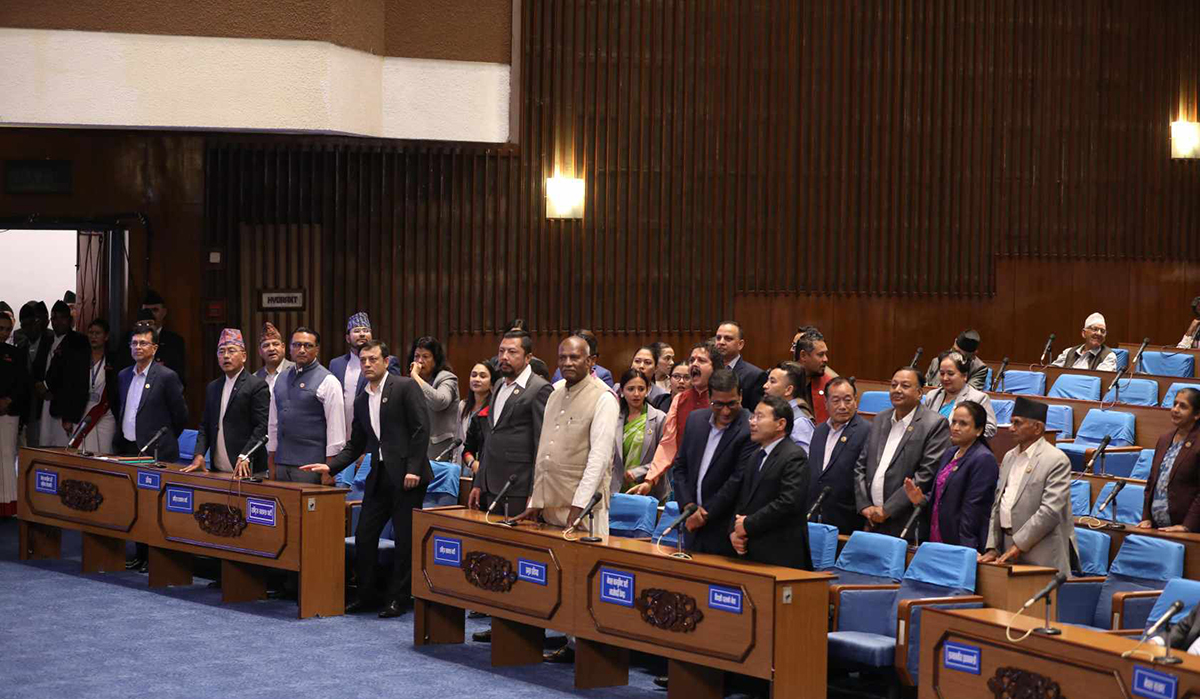One widely accepted reason for the poor showing of Nepali Congress in the 2017 elections was the manifest failure of party president Sher Bahadur Deuba to make his foot-soldiers, all shocked by the sudden left merger, believe that the party could still do well. The old problem of factionalism in Congress was compounded by Deuba’s inability to come up with a credible electoral slogan to challenge the twin communist agendas of ‘stability’ and ‘prosperity’. Now ahead of the meeting of NC Mahasamiti, the party’s second most-powerful body, scheduled for Dec 14-18, Deuba seems to be hanging on for dear life. Senior leader Ram Chandra Poudel, General Secretary Shashank Koirala, Krishna Prasad Sitaula, Prakash Man Singh—they are all miffed at what they see as Deuba’s go-alone mentality. Deuba’s unilateral appointment of Bijaya Kumar Gachchadar, someone who has only recently joined the party, as vice-president seemed to be the last straw. One thing these forever feuding leaders now agree on is that Deuba must go, at any cost.
They are all jockeying for a favorable position in lieu of the national general convention, the party’s supreme legislative and electoral body, slated for March 2020. Among other things, the general convention will elect a new leadership. But that is still some way off. Right now, the focus should be on giving final shape to a new statute that will help the party restructure in line with the federal setup. When that draft is finalized, it will have to be endorsed by the Mahasamiti. Yet as the battle between the ‘establishment’ and ‘anti-establishment’ factions intensifies, the taskforce formed to finalize the draft has not even been able to meet regularly. This tardy progress on the statute could in turn further delay the Mahasamiti meet.
Opportunism characterizes all politicians to an extent. Yet it is shocking to see how little the party leadership has learned from their drubbing in the last elections. Amid their little personal battles, a hard truth seems to have escaped them: it will be impossible for Congress to win an election unless one, it can clearly articulate its vision of the new federal Nepal and two, unless people know how the party will tackle their bread-and-butter issues. Deuba’s failure on these two fronts cost them the last set of elections. And yet none of the senior Congress leaders who are challenging Deuba has thus far shown any inclination, or imagination, to suggest that they are any better.











